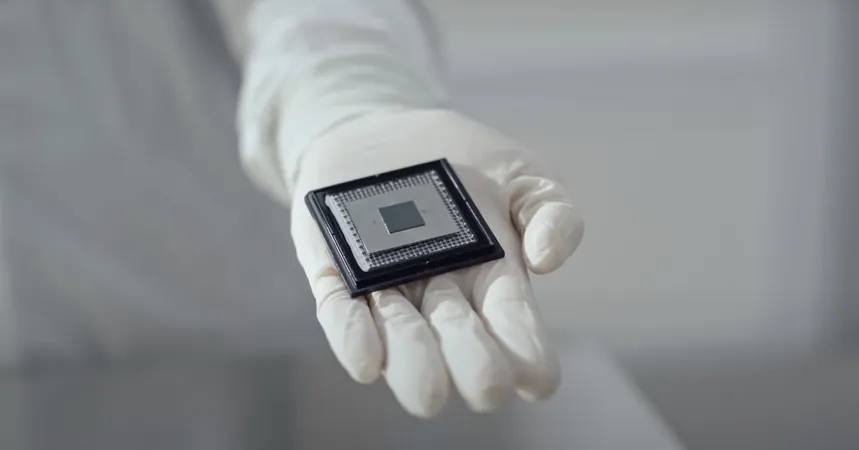
Google’s Quantum Chip Breakthrough: Why Modern Cryptography is Still Safe — For Now!
2024-12-12
Author: Sophie
Google’s Quantum Chip Breakthrough
In an exciting development from the world of quantum computing, Google has announced that its cutting-edge Willow chip, hailed as a "breakthrough" in the field, is not yet capable of dismantling the cryptographic systems that safeguard our data today. This clarification comes amid growing concerns about the future impact of quantum computing on security protocols.
Director's Statement
Charina Chou, the director and COO of Google Quantum AI, emphasized in an interview with The Verge, “The Willow chip is not capable of breaking modern cryptography.” This statement aims to quell fears that the chip could disrupt civilian and military communications or compromise critical infrastructure. In fact, the White House issued a stern warning in 2022 about the potential risks posed by what it terms a "cryptanalytically relevant quantum computer" (CRQC), which could undermine essential security measures.
Capabilities of the Willow Chip
But Google insists that its Willow chip is not at that level. While it can solve a complex calculation in five minutes that would take the most advanced supercomputer an unfathomable ten septillion years, the chip currently boasts just 105 physical qubits. According to Chou, achieving the capability needed to break robust encryption like RSA would require potentially millions of qubits. She projects that we are at least a decade away from this milestone, as estimates suggest around 4 million physical qubits would be necessary to challenge RSA encryption effectively.
Skepticism Towards Claims of Chinese Researchers
Despite claims from some Chinese researchers who assert they have found ways to crack RSA encryption using smaller quantum computers with hundreds or thousands of qubits, experts remain cautious and skeptical of these assertions.
Investment in Post-Quantum Cryptography (PQC)
In anticipation of a future where quantum computers could threaten current encryption standards, Google and other technology giants are proactively investing in post-quantum cryptography (PQC). This initiative gained momentum after the Edward Snowden leaks, which revealed that intelligence agencies, including the NSA, had been secretly funding research into code-breaking quantum technologies.
NIST's Efforts Towards Quantum-Safe Standards
In a significant step towards ensuring security in the quantum age, the National Institute of Standards and Technology (NIST) has been working since 2016 to develop new quantum-safe cryptography standards. Recently, NIST finalized three algorithms, with plans to choose additional standards by the end of the year, emphasizing the importance of staying ahead of potential threats.
A Global Race to Upgrade Encryption Systems
Furthermore, a 2023 editorial by the RAND Corporation warns that once an RSA-breaking quantum computer is confirmed—whether through public knowledge or credible speculation—it could trigger a global race to upgrade encryption systems to post-quantum standards. The urgency behind such transitions could lead organizations vulnerable to quantum attacks to rapidly modernize their communications security.
Conclusion
In conclusion, while Google's Willow chip showcases impressive advancements in quantum computing, it also serves as a reminder that the race between technological advancement and security measures continues. Experts and organizations must remain vigilant and prepared as we navigate the complexities of a rapidly evolving digital landscape.









 Brasil (PT)
Brasil (PT)
 Canada (EN)
Canada (EN)
 Chile (ES)
Chile (ES)
 España (ES)
España (ES)
 France (FR)
France (FR)
 Hong Kong (EN)
Hong Kong (EN)
 Italia (IT)
Italia (IT)
 日本 (JA)
日本 (JA)
 Magyarország (HU)
Magyarország (HU)
 Norge (NO)
Norge (NO)
 Polska (PL)
Polska (PL)
 Schweiz (DE)
Schweiz (DE)
 Singapore (EN)
Singapore (EN)
 Sverige (SV)
Sverige (SV)
 Suomi (FI)
Suomi (FI)
 Türkiye (TR)
Türkiye (TR)